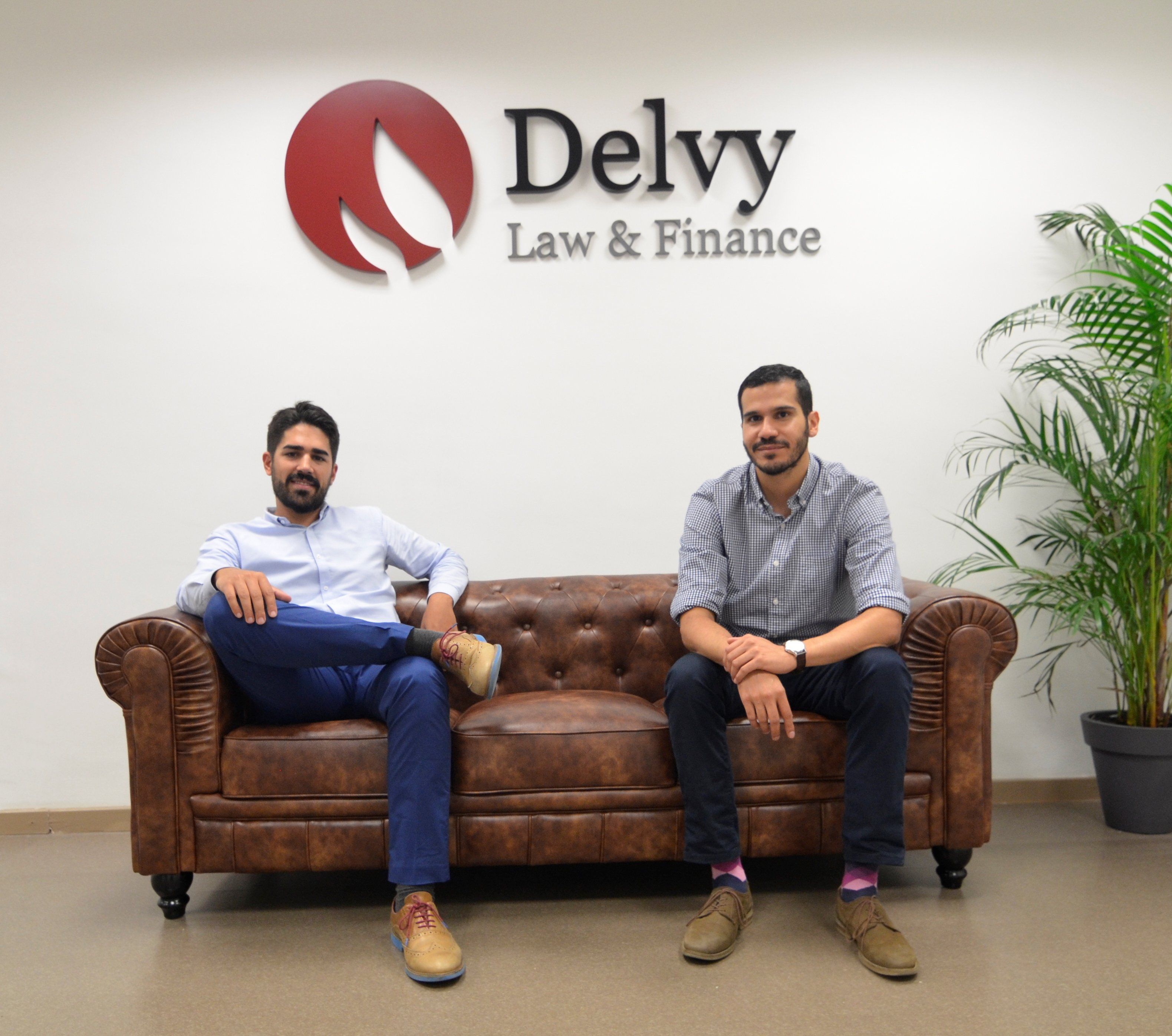
They have a reputation for being boring and normally dress in suits and ties. They are the best at reading (and writing) small print and also being business-minded. The entrepreneurial fever has also fully impacted the work of lawyers, who in entrepreneurs and startups have have found a new niche in the market. One of the firms that has decided to specialise in advising new companies is Delvy Law & Finance, which was set up in 2012. "We offered our services to Itnig, an incubator for tech companies. At the beginning we provided a basic service, but we began to learn more and ended up sharing an office," one of the firm's founders, JosepNavajo, tells Via Empresa. "From here on we saw that entrepreneurs and startups were a niche in the market we could take advantage of," he adds, and today they have a team of more than 10 people that includes economists and experts on labour relations.
When founding Delvy, they were convinced that they had to see entrepreneurs as fellow travellers. "We were young lawyers and we understood the needs and services required. At that time, it was all about bankruptcy proceedings and redundancies, while in the start-up sphere it was all about setting up businesses, partnership agreements and investment rounds. A very good atmosphere to begin," says Navajo.
From a different perspective appears the firm, AAMC Abogados. Set up in 1999, in attending startups and entrepreneurs, "there is no specific strategy, as in other firms, but rather it has been a natural trend for some of our clients who have acted as business angels or entrepreneurs," says JordiBrotons, partner of the tax section. They are clients and associates who have asked them to review partnership agreements, or entrepreneurs who have appealed to them directly about collaborating with such institutions as the Institut Químic de Sarrià (IQS).
Understanding the client
Providing a startup with legal advice is not the same as for a large company. "Normally the entrepreneurs are very green when they begin; they have no solid business knowledge about how to set up a business, how to bill, the tax on invoices, data protection or registering a brand. We have to provide a significant amount of training," says Navajo from Delvy.
The firm has grown at the same rate as the needs of the entrepreneurs. "They want a single interlocutor and they also ask us about issues of tax, accounting, labour, intellectual property or data protection. We have grown implementing these departments," says the cofounder.
In the case of AAMC Abogados, Brotons says that "the startups and entrepreneurs value the fact that we have experience with clients that are companies that have been operating for 50 or 70 years." According to the lawyer, "they gain comfort from knowing that they are working with a lifelong lawyer who will advise them in all the stages of the company."
Much more than partnership agreements
"Most of the time they come about the partnership agreement. There are increasingly fewer who come to set up the company, because it has little added value," says Brotons. However, he makes it clear that their intention is to take things further. "We are not only interested in providing support to this entrepreneur at the beginning, but also to continue with them as they do business and even to help them if there is a flotation."
In general, the entrepreneur is often looking for advice in starting the firm and continuing the business, "but flotation is greatly forgotten. Not having it carefully planned can cause a loss of the profit for the entrepreneur," he points out.
Navajo confirms that "the service we offer most is related to partnership agreements." The team of entrepreneurs can be made up of three, four or five people who have to regulate their relationship. "We still have clients who come whenever they have a problem, as when they began partnership agreements were not fashionable. We talked about them and did some, we did talks about them, but it was not common in startups," recalls Navajo.
Gradually, the partnership agreement has become the order of the day. "Everyone is now more aware and thinks about it beforehand. In the end it is no more than an internal reflection that entrepreneurs do to regulate the startup as it is and for the future, and that is a good thing," says the Delvy cofounder. For Brotons, it has taken a while but is something that "has matured a lot". "The lawyer has always been seen as someone who is very serious and who will cost a lot of money. However, in the long-run it is a necessary figure who has to be seen as a friend, another business partner who is there to help," he adds.
Another moment when their services are most in demand is when an investor appears. "Many of their doubts arise when they want to do a funding round: what rights and duties should the investors have, what percentages should they give, what is the company's valuation," says Josep Navajo. It is a complexity that rises as the company grows, which requires "constant legal assistance".
AAMC Abogados also get a lot of demands for assistance at this stage. "They ask us for help because the investor arrives with his own partnership agreement and lawyer," concludes Jordi Brotons.